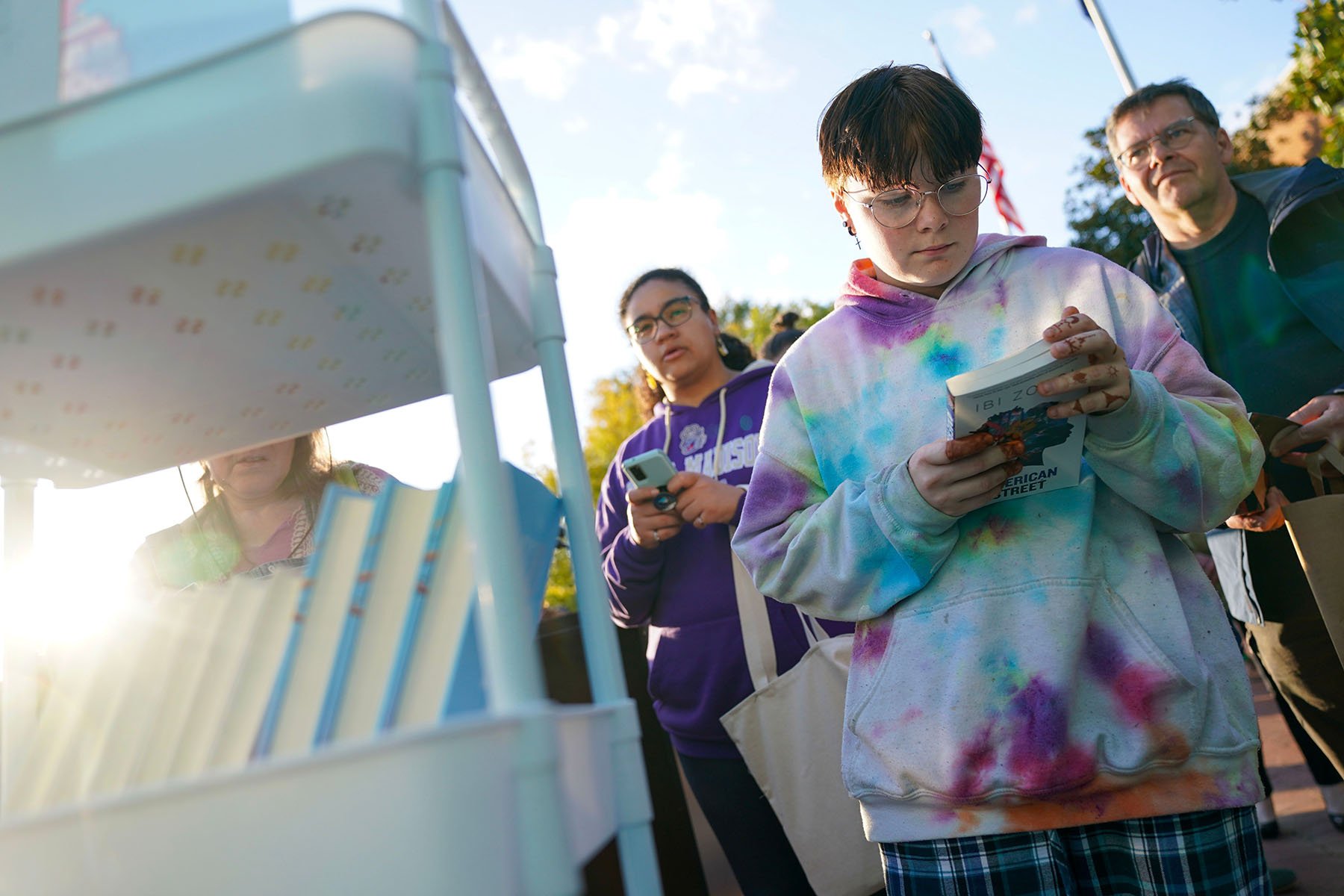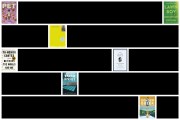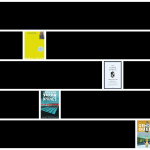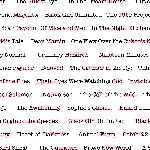Your trusted source for contextualizing education news. Sign up for our daily newsletter.
The number of books banned in public schools over the past year skyrocketed to more than 10,000, with two states — Iowa and Florida — responsible for most of them, according to preliminary findings released by PEN America on Monday.
The report comes during Banned Books Week, which first began in 1982 to raise awareness about the importance of free and openly accessible information.
The rise in banned books during the 2023-’24 school year — nearly tripling from 3,362 bans PEN recorded the previous year — can be attributed partly to the singling out of books about romance and women’s sexual experiences and those about rape or sexual abuse, according to PEN America, a nonprofit advocating for the protection of free expression. Books with LGBTQ+ or racial themes or characters from marginalized groups also continue to be targeted.
PEN America’s report does not reflect the banning of unique titles, so if a dozen school districts all banned the same book, it would count as 12 bans, a PEN representative explained.
A number of books, many of which are works by women of color, showed up on PEN America’s Index of School Book Bans for the first time over the past year. They include Julia Alvarez’s 1991 novel, “How the Garcia Girls Lost Their Accents,” about four immigrant sisters from the Dominican Republic — a popular pick for readers during Latinx Heritage Month. Other recent entries to the index include Amy Tan’s novel about the Chinese-American daughter of an immigrant mother, “The Kitchen God’s Wife” (1991); Terry McMillan’s romance novel “How Stella Got Her Groove Back” (1996); and Ellen Oh’s novel inspired by her mother’s experiences during the Korean War, “Finding Junie Kim” (2021).
Agatha Christie’s “Death on the Nile” (1937), Betty Smith’s “A Tree Grows in Brooklyn” (1943), Olive Ann Burns’ “Cold Sassy Tree”(1984), Barbara Kingsolver’s “Prodigal Summer” (2000) and Julie Murphy’s “Puddin’” (2018) also debuted on the index.
The 1953 novel “Go Tell It On the Mountain” by James Baldwin, a champion of civil and gay rights, appeared on the index for the first time, as did books related to slavery such as Alex Haley’s “Roots: The Saga of An American Family” (1976) and W.E.B. DuBois’ “Black Reconstruction in America, 1860-1880” (1935). Philip K. Dick’s 1968 dystopian novel “Blade Runner (Do Androids Dream of Electric Sheep)” debuted on the index, too.
More than a dozen new state and local policies contributed to the escalation of book bans over the past year. They include Iowa’s SF 496, which took effect last year and has been interpreted to mean that books with sexual or gender themes should be barred. According to PEN America, the law prompted thousands of book bans during the 2023-’24 school year, compared with just 14 bans in the state during the previous school year.
Florida’s HB 1069, which also took effect last year, mandates that books challenged for “sexual conduct” must be removed as they undergo review. PEN America said the statutory process the law created for book banning and “the state guidance building on it” has led to a spike in statewide book bans. In Florida and Iowa combined, roughly 8,000 book bans were recorded.
In Wisconsin, the Elkhorn Area School District banned more than 300 books for months on end, PEN America found. The books were removed after a single parent challenged them, but after the district reviewed the titles, they were eventually returned to the shelves, albeit with restrictions such as parental permission to check out certain titles. The organization expects newly enacted laws such as Utah’s HB 29, South Carolina’s Regulation 43-170 and Tennessee’s HB 843 to cause more book bans this school year.
The Utah law requires all schools in the state to ban a book once three school districts have found it objectionable. South Carolina’s regulation bans books with sexual subject matter and gives the state Board of Education the ability to censor works statewide. The Tennessee law requires schools to remove books with gratuitous violence or sexual content.
-
Read Next:
To mark Banned Books Week, the American Library Association (ALA) has also released preliminary data related to censorship, focusing on book bans in public, school and academic libraries between January 1 and August 31. ALA’s Office for Intellectual Freedom said it identified 414 attempts to censor works and that there were documented challenges to 1,128 unique book titles.
The number of attempts to censor books actually fell this year compared with last year’s 695 cases, the ALA found. The organization attributes this to widespread efforts to stop censorship. Librarians, students and concerned community members have organized against book banning in recent years, and book banning disputes have gone to court. This includes a federal court’s preliminary injunction on Arkansas’ Act 372, which would open librarians and bookstore owners in the state to criminal prosecution if they failed to remove “unsuitable” works from their shelves.
Censorship is an issue that has drawn attention from the 2024 presidential candidates. Former President Donald Trump’s campaign platform accuses President Joe Biden’s administration of “using the public school system to push their perverse sexual, racial and political material on our youth.” In July, Vice President Kamala Harris, the Democratic nominee, criticized book bans while speaking to the American Federation of Teachers union in Texas.
“While you teach students about our nation’s past, these extremists attack the freedom to learn and acknowledge our nation’s true and full history,” she said. “We want to ban assault weapons, and they want to ban books. Can you imagine?”
The theme of this year’s Banned Books Week theme is “Freed Between the Lines” to draw attention to how liberating reading can be. The week ends Saturday with Let Freedom Read Day to urge communities to fight censorship. Film director Ava DuVernay is the 2024 honorary chair of the day, while activist Julia Garnett, who fought book bans in Tennessee, is the youth honorary chair.
The 19th has a relationship with Bookshop.org. If you make a purchase through the Bookshop links on our site, we may earn an affiliate commission.






